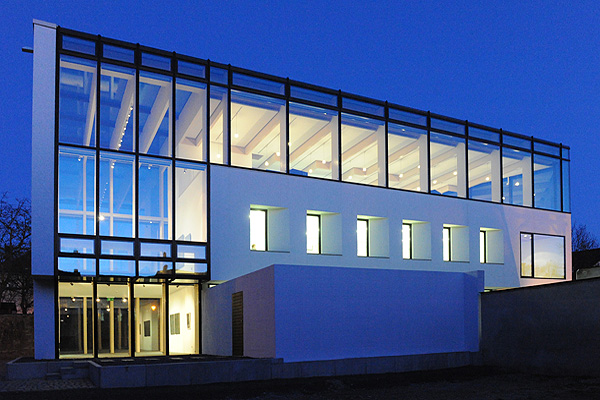
English Below
Kämpfe um Nietzsche
Nietzsche als Protagonist der europäischen und globalen Kultur bis zur ersten Nachkriegszeit.
33. Internationaler Nietzsche-Kongress 12. bis 15.10.2023 in Naumburg (Saale)
Wissenschaftliche Leitung: Hans Ruin (Södertörn University, Stockholm) Carlotta Santini (CNRS/Ecole Normale Supérieure, Paris)
Bis zum Ausbruch des Zweiten Weltkriegs waren Werk und Person Friedrich Nietzsches Gegenstand leidenschaftlicher Debatten, die alle Bereiche der Kultur beeinflussten. Weit über das „Phänomen Nietzsche“ oder die verschiedenen „Nietzscheanismen“ hinaus hatte dies eine Tragweite, die über eine bloße kulturelle Modeerscheinung hinausgeht. Seine Philosophie bildet einen theoretischen Bezugspunkt, ein Laboratorium von Denkmodellen, auf das sich unterschiedlichste Akteure des kulturellen Lebens der Zeit stützen.
Bevor die akademische Forschung nach dem Zweiten Weltkrieg seine Philosophie durch die Etablierung wissenschaftlicher und philologischer Standards vor Vorurteilen und voreingenommenen Lesarten bewahrte, hatte der Philosoph bereits einen Grad an Verbreitung und Berühmtheit erlangt, der ihn zu einem der wichtigsten kulturellen Phänomene des Jahrhunderts machte. Auf diese „ersten Leser“ richtet sich unsere Aufmerksamkeit. Montinaris Annahme folgend, fragen wir, was „Nietzsche lesen“ in dieser Zeit bedeutete. Dies ist von zentraler Bedeutung, denn es sind die Jahrzehnte, in denen sein Mythos entstand und ein regelrechter „Kampf um Nietzsche“ entbrannte, der zu idiosynkratischen Entstellungen seines Denkens führte, gegen die die Forschung bis heute ankämpft.
Wir werden der Verbreitung seines Denkens durch seine ersten „Leser“ folgen, derjenigen, die ihn persönlich kannten, der Intellektuellen, die ihn zuerst entdeckten oder kritisierten, der Künstler, die sich inspirieren ließen, der populären und politischen Bewegungen, die sich um ihn scharten, und der Wissenschaftler, die sich seine Philosophie zu eigen machten und auf ihre Forschungsgebiete anwendeten. Zu untersuchen ist, was daran originell, gültig und produktiv war. Die Quellen der bis heute andauernden Vorurteile sind zu identifizieren und womöglich zu falsifizieren.
Sektionen:
- Nietzsche im Spiegel seiner Zeitgenossen
- Nietzsche in Literatur und Kunst
- Nietzsche zwischen utopischen Bewegungen und Gesellschaftskritik
- Nietzsche und die Humanwissenschaften
- Der Kampf um Nietzsche
Keyspeakers: Steven Aschheim (Hebrew University of Jerusalem); Christian Benne (København Universitet); Scarlett Marton (Universidade de São Paulo); Paul Bishop (Glasgow University); Vivetta Vivarelli (Università degli Studi di Firenze); Hans Gerald Hödl (Universität Wien); Katharina Grätz (Freiburg Universität); Graham Parkes (Universität Wien); Gaia Domenici (University College London)
Abstract (max. 350 Wörter) und CV bis zum 31.05.2023.
an info@nietzsche-gesellschaft.de
Struggles over Nietzsche
Nietzsche as Protagonist in European and Global Culture up until the First Postwar Period.
33. Annual Conference of the Nietzsche Society
Naumburg an der Saale, 12-15 October 2023
Organiser: Hans Ruin (Södertörn University, Stockholm) / Carlotta Santini (CNRS/école Normale Supérieure, Paris)
From the early years of his retirement and illness until the outbreak of the Second World War, the work of Friedrich Nietzsche, as well as his figure and his life, have been the subject of fervent debates that has affected all areas of culture, first in Europe and then worldwide. Far beyond the ‘Nietzsche phenomenon’ or the various ‘Nietzscheanisms’, the philosopher’s fortune has a scope that goes beyond that of a mere cultural fad. Nietzsche’s philosophy has in fact constituted for decades an inescapable theoretical point of reference, a laboratory of categories and models of thought, on which the most diverse players in the cultural and intellectual life of the time have drawn.
Before academic research after World War II rescued the philosopher Nietzsche from prejudice and biased readings by establishing scientific and philological approaches, Nietzsche’s philosophy had already achieved a level of diffusion and celebrity that made it one of the most important cultural phenomena of the century. It is to these first readers, still free from fixed hermeneutical schemes, and to this Nietzsche “ante litteram”, before the canon, that the attention of our conference is directed. Following Montinari’s assumption, we will ask ourselves what “Reading Nietzsche” meant in the first decades of the reception of his work. Asking this question is crucial: these are indeed the decisive decades that consecrated his myth, but also saw the rise of a real “Kampf um Nietzsche”, which gave way to multiple idiosyncratic deformations of his thought, against which Nietzschean criticism still struggles today.
Across the spectrum of the philosopher’s early reception, we will follow the many routes of dissemination of his thought through the voices of his first “readers”, those who knew him personally, the intellectuals who first discovered or criticized him, the artists who were inspired by him, the popular and political movements that rallied around him, and the scholars who made his philosophical principles their own and applied them to their specific fields of research. The aim of this survey is to investigate what was original, valid and potentially productive in those approaches to Nietzsche’s thought that were as diverse as they were rich and free, but also to identify, and where possible to falsify, the sources of those prejudices against Nietzsche’s philosophy that persist up to the present day.
Contributions may address the different Nietzsche-readings that marked the stages of his European and worldwide fortune between the 1890s and the 1930s. Contributions may concern the role of Nietzsche’s philosophy in the thought and work of philosophers and cultural critics, religious reformers, socialists and conservatives, sionists, feminists, utopian dreamers and dystopian prophets, artists, musician, and writers as well as psychoanalysts and scholars in anthropology, art history, religion, and literature.
Sections:
- Nietzsche through his contemporaries
- Nietzsche in literature and the arts
- Nietzsche between utopian movements and social critique
- Nietzsche and the Human Sciences
- Der Kampf um Nietzsche
Keyspeakers: Steven Aschheim (Hebrew University of Jerusalem); Christian Benne (København Universitet); Scarlett Marton (Universidade de São Paulo); Paul Bishop (Glasgow University); Vivetta Vivarelli (Università degli Studi di Firenze); Hans Gerald Hödl (Universität Wien); Katharina Grätz (Freiburg Universität); Graham Parkes (Universität Wien); Gaia Domenici (University College London)
Abstract (max. 350 words) and CV by 31/05/2023 to info@nietzsche-gesellschaft.de
Friedrich-Nietzsche-Stiftung und Nietzsche-Gesellschaft e.V.,
Nietzsche-Dokumentationszentrum, Jakobsmauer 12, D-06618 Naumburg/Saale
Tel.: +49 (0) 3445/ 26 11 33 Fax: +49 (0) 3445/ 26 11 58
info@nietzsche-gesellschaft.de www.nietzsche-portal.eu
 Mark as favourite
Mark as favourite